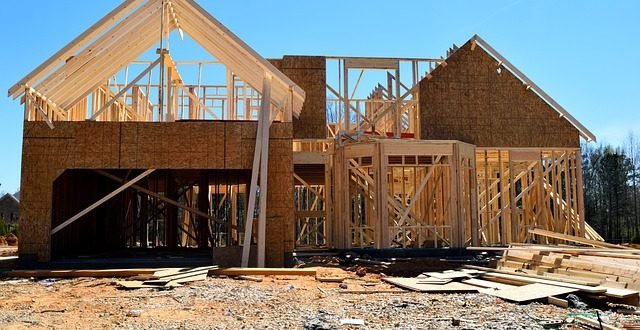You may be wondering how long does it take to build a house? Building a house is an incredibly labor-intensive process that takes time, patience, and skill. While it may be possible to build a small structure fairly quickly, the work required for an average home from breaking ground to putting on the finishing touches can take anywhere from three months to a year or more.
Depending on the size and complexity of the project, constructing a house requires all sorts of professionals in different fields. Design experts must create architectural plans. Contractors need to excavate and lay foundations. Carpenters have to raise the walls and install essential fixtures.
In addition, ensure all necessary inspections are passed before occupancy can be granted. When building your new home, make sure to add extra time to your timeline. It might take longer than expected!
Factors Affecting House Construction Duration
| Site preparation | Clearing the land, grading and leveling the site, and installing utilities can take a significant amount of time. |
| Weather | Inclement weather can delay construction and lengthen the overall timeline. |
| Permits and inspections | Obtaining the necessary permits and passing inspections can add time to the construction process. |
| Design and plans | The complexity of the design and plans can affect the length of time it takes to build a house. |
| Material availability | If certain materials are not readily available, it can cause construction delays. |
| Labor availability | A shortage of skilled labor can also slow down the construction process. |
| Funding | A lack of funding can delay the construction and lengthen the overall timeline. |
| Size and complexity of the house | Larger and more complex houses will take longer to build than smaller, simpler houses. |
| Customization | If a homeowner wants a lot of custom features it will take longer than building a standard model house. |
| Region | The region and local regulations can also play a role in the time it takes to build a house. |
How Long Does It Take To Build A House In The USA
The average time it takes to build a house in the USA is around 6-7 months. But it can range anywhere from 3-12 months depending on the complexity of the project and the speed at which permits and approvals are obtained.
This can include everything from obtaining permits and laying down foundations to hanging doors and putting the final touches on the landscaping. In some cases, building a house can take up to a year or two due to unexpected delays or complications.
Fortunately, most of the works allotting such processes are handled by qualified builders. Homeowners don’t have to worry too much about the details.
Though there may be additional inspections required along the way people looking to construct a new home will find that six months is long enough to bring their ideas to fruition with help from an experienced team!
How Long Does It Take To Build A House In The UK
The average time it takes to build a house in the UK is around 12-24 months, depending on the complexity of the project. However, it can take longer if there are delays in obtaining planning permission or if there are issues with accessing the building site.
This is quite a bit longer when compared to other countries that are known for their efficient building processes such as Canada, Netherlands, and Germany where the average duration for construction of a house ranges from 6 to 10 weeks.
In the UK, multiple factors contribute to the time it takes for completion. The complexity of design, expensive materials, and labor costs are some contributing factors that can add extra time to the process.
Furthermore, local planning laws can significantly impact time progress as multiple applications must be submitted for approval before construction begins. Often it can take months for plans and permissions to be approved by local authorities.
For anyone looking to build in the UK, being aware of all these factors can help better plan ahead and enable an overall smoother construction process.
How Long Does It Take To Build A House In Canada
The average time it takes to build a house in Canada can vary depending on the region. Generally, it takes around 6-10 months to complete a new construction project. Factors such as the complexity of the design and local building codes can influence the timeline.
This range is due to the building materials used in construction, the home style being built, and how many workers are required for installation. For example, an average two-story single-family home with interior furnishing would take longer than a one-story cottage with basic external structures.
Although the timeline for building a house in Canada can differ from case to case, planning for adequate time should be taken into account when beginning the project.
It is important to ensure that all safety regulations and building code provisions are met during the construction process to provide safe and secure housing.
Steps In Building A New Home, Including Obtaining Permits And Inspections

Building a new home involves several steps, including obtaining permits and inspections. The specific requirements and processes can vary depending on the country. Here is an overview of the general steps involved in building a new home in the USA, Canada, and the UK:
- Obtain the necessary permits and approvals from the local government. This typically includes zoning permits, building permits, and any other permits required for the specific location and type of construction.
- Conduct a site survey and soil test to ensure that the land is suitable for building and to determine the type of foundation that will be needed.
- Hire an architect or design professional to create plans for the home. These plans will be used to obtain building permits and to guide the construction process.
- Hire a contractor to oversee the construction of the home. The contractor will be responsible for obtaining the necessary materials and hiring subcontractors for specific tasks, such as electrical and plumbing work.
- Begin construction. This will typically involve excavation, foundation work, framing, and the installation of utilities such as electricity and plumbing.
- Obtain inspections at various stages of construction, including foundation, framing, and final inspection. These inspections are typically required by the local building department to ensure that the home is being built to code and is safe for occupancy.
- Complete any final touches and obtain a certificate of occupancy. This certificate is issued by the local government and certifies that the home is safe to live in and meets all building codes.
8 Tips For Speeding Up The Process And Avoiding Delays
Here are some tips for speeding up the process and avoiding delays when building a new home in the USA, Canada, and the UK:
Do your research
Before you begin the process, research the specific regulations and requirements for the area where the home is being built. This will help you understand the permit process and what inspections will be required.
Hire a professional
Hiring an architect or design professional can help to ensure that your plans meet all the necessary codes and regulations.
Be prepared
Have all the necessary documents ready when applying for permits. This can include site plans, architectural drawings, and soil test results.
Be proactive
Regularly check in with the building department and inspectors to ensure that everything is progressing as expected.
Communicate with your contractor
Make sure to communicate clearly with your contractor about your expectations and timelines.
Get a pre-inspection
You can get a pre-inspection to know if any potential issues need to be addressed before the final inspection. This will save time and money.
Use technology
There are online building permit systems that allow you to submit plans and applications online. This can help speed up the process and avoid delays.
Avoid changes
Try to avoid making changes to the design or plans once construction has begun. This can cause delays and added expenses.
By following these tips, you can help ensure that the process of building your new home goes as smoothly and efficiently as possible.
Keep in mind that the regulations and requirements for building a new home can vary depending on the country, state, province, or municipality. Be sure to check the specific regulations and requirements for your area. Always consult with a professional before starting any construction.
Conclusion
Building a new home can be an exciting and rewarding experience. It requires careful planning and preparation. By doing your research, hiring professionals, and being proactive throughout the process, you can help ensure that your new home is built safely and efficiently. Don’t forget to check with local authorities to make sure all regulations are followed. This will help prevent delays and added costs. With proper planning and preparation, your new home will be the perfect place to start making memories with your family.

